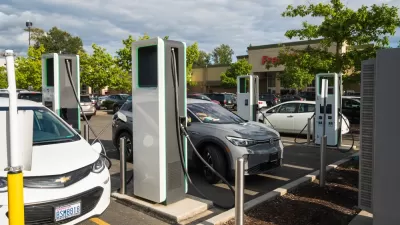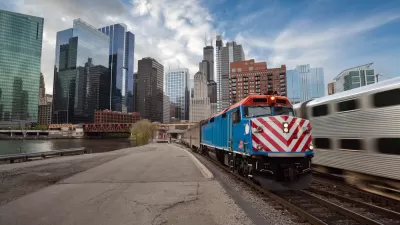Alternative fueled vehicles are increasing and will continue to gain in the next decade, according to a new report by the Fuels Institute, but light duty vehicles powered by gasoline will dominate. Diesel fuel will power 94% of heavier vehicles.
According to the press release from the Fuels Institute, "For light-duty vehicles (passenger vehicles and light trucks), gasoline-powered vehicles will continue to dominate the market, although overall market share could decline from 93% in 2012 to as low as 82% of vehicle inventories in 2023."
The report [PDF] could be perceived as a bit of a mixed message, assuring purveyors of "conventional fuels" they have little to fear and manufacturers of alternative vehicles that progress is being made.
“On the surface, it may not seem that significant change is occurring, because gasoline and diesel fuel-powered vehicles will continue to dominate the vehicle fleet in 2023, but alternatives are gaining traction,” said John Eichberger, executive director of the Fuels Institute.
In any case, alternative vehicle manufacturers have their work cut out for them. "Given that there are more than 250 million vehicles on the road today, it will take years of strong sales of alternative fuel vehicles to reshape the country’s vehicle fleet," the release states.
The report studies vehicles powered by "flexible fuel" or E85 (ethanol), natural gas, propane, battery-electric, and fuel cells.
The press release indicates that "(t)he Fuels Institute, founded by the National Association of Convenience Stores (NACS), is a non-profit, research-oriented think-tank dedicated to evaluating the market issues related to consumer vehicles and the fuels that power them."
"We need to ask — and answer — some tough questions so that the vehicles and fueling markets can develop together and convert consumers to new type of vehicles, said Eichberger.”
What may be of equal, or even greater concern to the businesses selling motor vehicle fuels is the reduced volume of gasoline and diesel sold, a result of both a decline in driving and increased fuel efficiency.
FULL STORY: Alternative Fuel Vehicles to Gain Traction Over the Next 10 Years

Alabama: Trump Terminates Settlements for Black Communities Harmed By Raw Sewage
Trump deemed the landmark civil rights agreement “illegal DEI and environmental justice policy.”

Planetizen Federal Action Tracker
A weekly monitor of how Trump’s orders and actions are impacting planners and planning in America.

How Atlanta Built 7,000 Housing Units in 3 Years
The city’s comprehensive, neighborhood-focused housing strategy focuses on identifying properties and land that can be repurposed for housing and encouraging development in underserved neighborhoods.

In Both Crashes and Crime, Public Transportation is Far Safer than Driving
Contrary to popular assumptions, public transportation has far lower crash and crime rates than automobile travel. For safer communities, improve and encourage transit travel.

Report: Zoning Reforms Should Complement Nashville’s Ambitious Transit Plan
Without reform, restrictive zoning codes will limit the impact of the city’s planned transit expansion and could exclude some of the residents who depend on transit the most.

Judge Orders Release of Frozen IRA, IIJA Funding
The decision is a victory for environmental groups who charged that freezing funds for critical infrastructure and disaster response programs caused “real and irreparable harm” to communities.
Urban Design for Planners 1: Software Tools
This six-course series explores essential urban design concepts using open source software and equips planners with the tools they need to participate fully in the urban design process.
Planning for Universal Design
Learn the tools for implementing Universal Design in planning regulations.
Caltrans
Smith Gee Studio
Institute for Housing and Urban Development Studies (IHS)
City of Grandview
Harvard GSD Executive Education
Toledo-Lucas County Plan Commissions
Salt Lake City
NYU Wagner Graduate School of Public Service





























